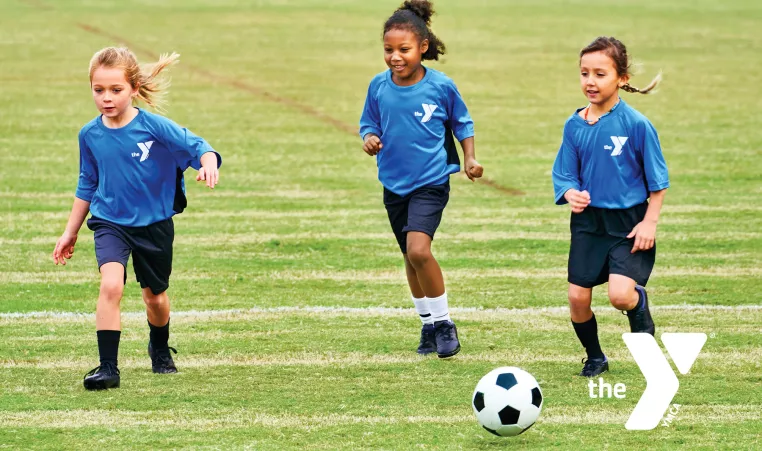
Benefits of Engaging Young Children in Sports
From the first steps to the first catch, children benefit from learning by trying new things. It all starts with being introduced in small doses, meeting age-appropriate milestones, and developing a love for the game.
Meet Alice, a very energetic three-year-old, running around the house, grabbing her beach ball, and running out to the backyard. Once outside, she takes her beach ball and starts moving it around with her feet going from fence to fence. While preparing lunch, mom looks out the kitchen window and sees Alice kicking and kicking while running and laughing. A month later, we find Alice on the soccer field with a group of kids all around her age with a parent volunteer who is leading the group of kids through a game of red light, green light, moving their soccer balls from cone to cone. Next, we see this group of kids pair up with another team preparing for their game. With three kids on the field for both teams, the ball begins in the middle, Alice reaches with her foot, taps the ball, and starts to chase it, continuing to move it down the field. Then along comes Bud, who stops Alice, and kicks the ball off the field. Once the ball comes back into play, Alice swipes the ball and kicks it straight into the goal.
Learning a game at a young age can lead to several overall health benefits, including, but not limited to: improved coordination and balance, by learning a sport, children are learning to move in different ways along with learning how to combine different movements to complete a skill which helps to improve balance by stimulating the brain to have the body perform functions that are not done outside of sports similar to shooting a ball into a goal, running to score a touchdown, or serving a ball over a volleyball net which all help with overall physical development which can lead to healthy habits, improved fitness and give kids an emotional outlet to help relieve stress and improve overall mental health awareness.
Children who participate in sports also tend to have stronger social skills by learning different ways to communicate and work together as a team to accomplish a goal. Learning about teamwork at a young age helps children to communicate more effectively with their peers and helps them to develop leadership skills that they can use throughout their lives.
A few things to consider when thinking about getting your future all-star set up for success is the program. Is the program going to help your child learn and develop fundamentals? Going straight into a competitive program with no prior knowledge of fundamentals, can lead to discouragement and lack of enjoyment. Participating in a fundamental program helps to develop the skills necessary to help ensure future success. Next thing to consider, is the program going to allow for equal participation, ensuring that all children receive the opportunity to participate, learn and grow? Choosing a program for young athletes which stresses equal playtime is important for allowing children the time needed to participate to learn the needed skills and coordination to be successful. Lastly, does the program help to build a child’s confidence by having a welcoming environment? Children respond well to positive reinforcement which helps to boost their confidence and increase their success rate.
As we see, there are several benefits to children participating in youth sports beginning at a young age. When you are ready to get started, be sure to reach out and contact your youth sports director who will be able to share with you all the different opportunities and skills that are going to be focused on with any age group.
Alexis U., Senior Program Director: Mills County YMCA